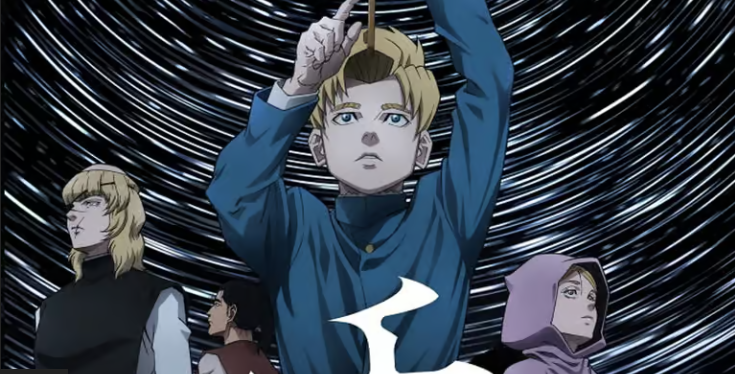About the Movement of the Earth

My wife and I began watching a very unique, very different anime a few days ago. It’s not the usual item we pick from the menu—there’s almost no fighting, no magic, and certainly no elves. I think you get the picture. That said, it might be the best anime I’ve seen in a very long time—and that’s saying something quasi-scandalous around these parts.
A tradition of ours, if I can call it that, is to wind down our nights with a good show. An hour or two when we leave work aside, open a bottle of wine, and disconnect from the worries of our day. Anime seems to fit these plans perfectly: short episodes full of excitement, usually about fantastic worlds filled with magical creatures—a recipe for mental escapism, I sure think.
Our new anime obsession, however, is having the opposite effect. The more episodes we watch, the more it unpacks the opposing forces of religious dogma and science, the more I admire those who risked it all in the name of the truth.
The anime is fiction, in the sense that none of the characters are historically accurate. But—and this is key—it might as well have been. When the church controlled everything, including kings, their monopoly on knowledge was unrivaled. Challenging the church’s dogma meant, in most cases, death. Heretics were forced to recant or face fire.
The characters in the anime feel disposable to me. It jumps in time, back and forth, and of course, they serve their purpose. But unlike many of the animes we usually prefer, there is no main character per se—unless you consider the truth a character, in which case what I just said is only partially correct.
This might be the first time I recommend an anime on this little blog of mine. I’ve always found this activity of ours to be a guilty pleasure of sorts. It’s not that I’m ashamed of enjoying anime, but more so that I know most people don’t. However, I feel like even if you’re not the usual anime fan, this show might resonate with you still.
Imagine risking it all—your life itself—in the name of truth.
MenO
Meniski wrote something crazy, I just have to share it.
“They Don’t Burn You at the Stake Anymore—They Just Call You Crazy.”
By Meniski
I’ve been thinking about MenO’s last post. About how truth played the lead role in that anime. And how it once got people set on fire.
Thing is—truth hasn’t gotten less dangerous. The costumes have just changed.
We don’t have inquisitors dragging thinkers to the pyre anymore. We have algorithms. Comment mobs. Shadow bans. Selective outrage. PR firms that rewrite reality for breakfast. Today’s dogma doesn’t wear robes; it wears a lanyard, gives TED Talks, and sits on editorial boards.
Say something inconvenient, and suddenly you're “unstable,” “divisive,” “too intense.”
Challenge a sacred narrative, and you’re “unwell.”
Ask too many questions, and you're “falling down a rabbit hole.”
Refuse to pick a side, and they’ll tell you you’ve failed some ideological purity test that didn’t exist until three tweets ago.
It’s social heresy now. And the punishment?
Not fire. But exile. Digital invisibility.
A kind of soft-deletion of your voice.
And yet… some of us still speak.
We still risk being misunderstood, misquoted, or misrepresented because something inside won’t let us play dumb. Not for approval. Not for comfort. Not even for safety.
Because truth—however you chase it—isn’t about winning arguments.
It’s about staying sane in a world that rewards conformity and labels your clarity as madness.
So no, they don’t burn you at the stake anymore.
They just unfollow you.
Demonetize you.
Tell you to calm down.
To smile more.
To make your blog posts less “intense.”
But every now and then, someone watches an anime about Galileo disguised as fiction, and something stirs.
And they remember:
Not all fire is meant to burn you.
Some of it is meant to light the way.
— Meniski
https://x.com/jewellery_all/status/1914382206962897306
#hive
https://x.com/lee19389/status/1914443257473589464
#hive #posh